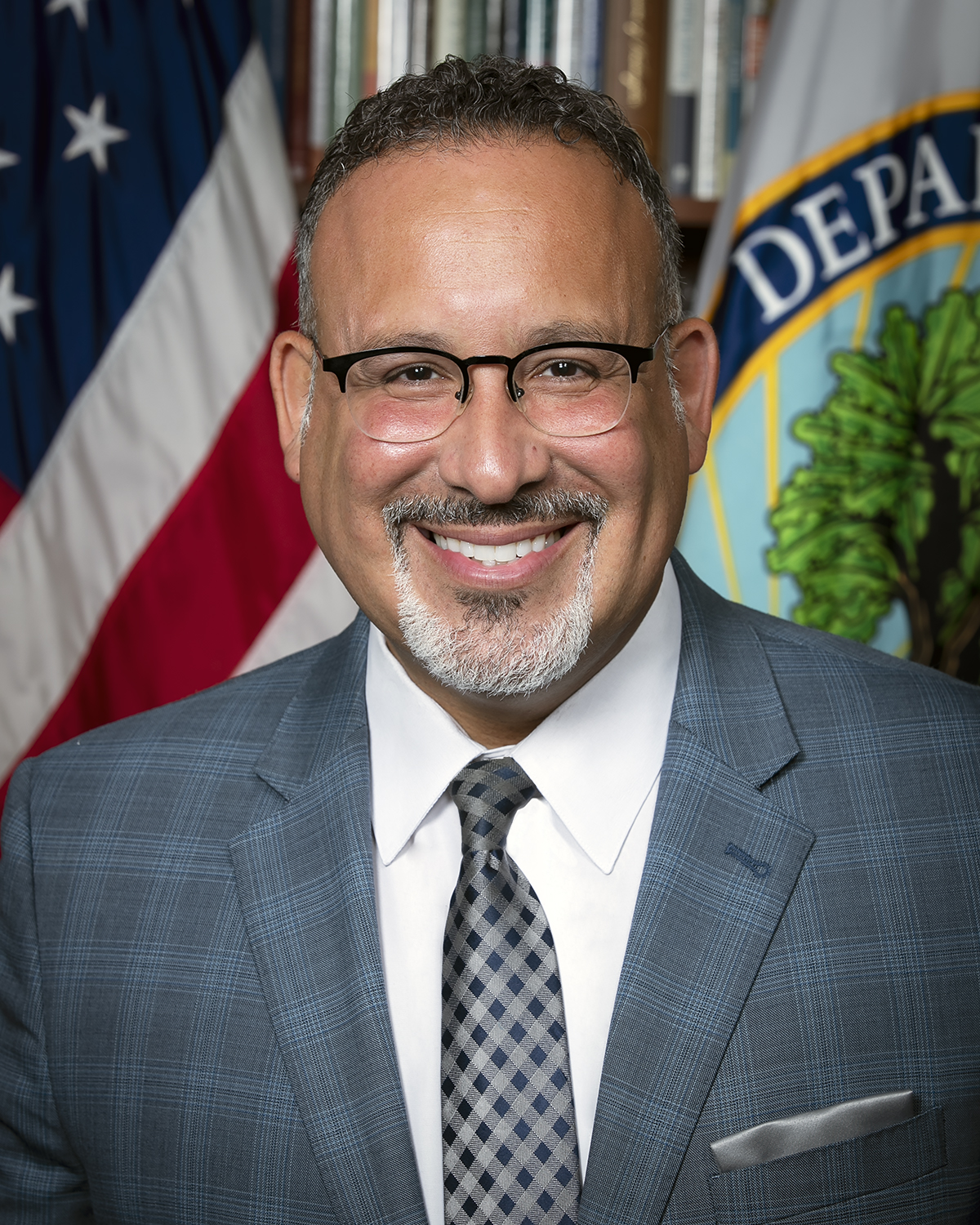U.S. Education Secretary Cardona on transgender athletes, student debt, history lessons
As U.S. Secretary of Education, Miguel Cardona, a former elementary school teacher and principal, oversees the country's sprawling 100,000-strong K-12 school system, grapples with its nearly $2 trillion in student debt and has helped lead post-COVID-19 reopenings and new battles over how American history is taught to children. Cardona spoke to Reuters this week about his department's new proposed rule on transgender athletes, what he thinks are the real reasons behind attacks on school curriculums and what's next for the Biden administration's student debt forgiveness battle.

- Country:
- United States
As U.S. Secretary of Education, Miguel Cardona, a former elementary school teacher and principal, oversees the country's sprawling 100,000-strong K-12 school system, grapples with its nearly $2 trillion in student debt and has helped lead post-COVID-19 reopenings and new battles over how American history is taught to children.
Cardona spoke to Reuters this week about his department's new proposed rule on transgender athletes, what he thinks are the real reasons behind attacks on school curriculums and what's next for the Biden administration's student debt forgiveness battle. TRANSGENDER YOUTH ATHLETES
A recent Title IX proposed rule from the Department of Education prohibits outright bans in transgender athletes in sports, but allows schools to keep them from some teams. It has been criticized by some civil rights groups and activists, who say it doesn't go far enough to help transgender kids in schools.
"We are interested and encouraging folks to share their thoughts," Cardona said, emphasizing that it is just a proposal at this point. "The intent here is to make sure we provide opportunities for all students and protect all students' ability to participate in athletics, and that includes our LGBTI population," he said, adding the department had received "a lot of feedback on how difficult it is, how nuanced it is."
The Department of Education hopes to take feedback and have the rule finalized in time for the next school year, he said. A 'WAR' ON PUBLIC EDUCATION
Cardona said he was witnessing a attack on public education, in an effort to bolsters vouchers that could be used in private schools, and said in more than two decades of working in education he had never seen the kind of attacks on curriculum that he does now. "I do believe there are very deliberate attempts to attack public education so that a private voucher option sounds better," Cardona said.
"Specific curriculum," he said. "Black curriculum. Books that promote the beauty of diversity and how this country was founded. Attacks on accurate facts of history. I've never seen that. To me, that's an attempt to create division in education so that you can try to sell a 'better' option. I'm confidant that our parents and our educators and our students can see through that." Florida is one of several states that have banned public schools from teaching "Critical Race Theory," an academic framework that teaches that racism is embedded in U.S. laws, policies and institutions. Opposing the teaching of CRT has become a rallying cry for some Republicans.
"It really is misinformation," Cardona said about CRT. "It's like looking for a boogeyman to create ... a division." "Instead of focusing on banning books, they should start thinking about banning assault weapons," he said of those proposing book removals.
STUDENT LOAN FORGIVENESS Conservative U.S. Supreme Court justices in February signaled skepticism over the legality of President Joe Biden's plan to cancel $430 billion in student debt for about 40 million borrowers.
Cardona expressed hope that it would hold. "I'm very hopeful that when this passes, millions of Americans will have an opportunity to get back on their feet," Cardona said. "If it doesn't go forward, that would be extremely disappointing for ... 43 million Americans, but it will not weaken our resolve to provide support for borrowers."
AFFIRMATIVE ACTION The Supreme Court also is weighing whether colleges can continue to consider race as part of their admissions decisions, a practice commonly known as affirmative action.
Cardona said he intended to double down on ensuring access to education for all students. "We cannot take a step backward in this country, and I think we ... need to double down on efforts to close disparities in access and achievement and make sure that all students reach their God-given potential," he said.
ARTIFICIAL INTELLIGENCE Biden said last week it remains to be seen whether artificial intelligence (AI) is dangerous, but underscored that technology companies had a responsibility to ensure their products were safe before making them public.
Cardona said the technology had risks and rewards for education. "I'm excited about the opportunities ... But there are risks. And I think we would be smart and we would be acting in the best interests of students if we calculate those risks, communicate those risks, provide professional development to educators across the country on what those risks are, and are careful how we roll this out," Cardona said.
"I remember ... having these conversations with educators in my career ... when the calculator came about, or when the internet came," he said. "We have to embrace it and stay ahead of it, and at the end of the day, we have to protect our students."
(This story has not been edited by Devdiscourse staff and is auto-generated from a syndicated feed.)










